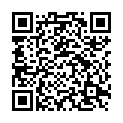|
|
|
| Module code: E2104 |
|
|
4V+1U+1P (6 hours per week) |
|
7 |
| Semester: 1 |
| Mandatory course: yes |
Language of instruction:
German |
Assessment:
Written exam, exercise (no grade), practical exam with composition (3 laboratory experiments, no grade)
[updated 26.01.2023]
|
EE1104 (P211-0056, P211-0057, P211-0058) Energy system technology / Renewable energies, Bachelor, ASPO 01.10.2022
, semester 1, mandatory course
E2104 (P211-0056, P211-0057, P211-0058) Electrical Engineering and Information Technology, Bachelor, ASPO 01.10.2018
, semester 1, mandatory course, technical
|
90 class hours (= 67.5 clock hours) over a 15-week period.
The total student study time is 210 hours (equivalent to 7 ECTS credits).
There are therefore 142.5 hours available for class preparation and follow-up work and exam preparation.
|
Recommended prerequisites (modules):
None.
|
Recommended as prerequisite for:
E2204 Fundamentals of Electrical Engineering 2
E2590
E2605 Fundamentals of High-Voltage Engineering and Test Engineering
[updated 11.10.2024]
|
Module coordinator:
Prof. Dr. Marc Klemm |
Lecturer: Prof. Dr. Marc Klemm
[updated 10.09.2018]
|
Learning outcomes:
After successfully completing this module, students will be familiar with the basic electrotechnical knowledge and analysis methods from the field of direct current theory and the electrical field required for all areas of specialization offered in the program. This means that they will be able to calculate with the relevant physical formulas and quantities and, based on the generally valid, common physical-mathematical laws, derive or implement useful approaches and calculations for problems arising from this subject area.
They will be familiar with the analogies between the flow and E-fields and the properties of materials, as well as the mutual interactions between the fields and materials. In particular, they will be able to determine the field characteristics of both fields for frequently occurring geometries and how they are fundamentally influenced by shapes and materials. They will be able to:
- calculate - (also for inhomogeneous fields or fields of several sources) - field and potential energy curves, forces on charges / electrodes / interfaces, as well as energies
- carry out circuit and component calculations and designs using various common analysis methods for circuits with linear components (EQV, MSV, KPV) and non-linear components (operating point determination)
- calculate dynamic processes in RC circuits
With this knowledge, students will be able to perform computational and metrological analyses, as well as configurations even on unfamiliar simple circuits or new problems. They will also be able to dimension components.
Through a series of experiments in the lab course, which are designed as small projects and carried out in small groups, the students will have acquired skills in teamwork, time management and working independently.
[updated 26.01.2023]
|
Module content:
1. General basics:
1.1 Physical quantities, MKS system of units
1.2 Physical quantity equation, numerical-value equation
2. Direct Current
2.1 Electrical charge, current, source, voltage
2.2 Ohmic resistance and electrical circuits
- Temperature behavior, designs, standard series, interconnections
- Kirchhoff’s voltage law, Kirchhoff’s first law, current and voltage divider, range extension
- Ideal sources, equivalent sources, interconnections, impedance matching;
- Calculating networks: Equivalent resistance, equivalent two-pole source, superposition method, mesh current and nodal potential method, graphical solution method, operating point determination for linear and non-linear components on real sources.
3. Electric Field
3.1 Variables: Field strength, displacement density, fundamental laws
3.2 Field calculation: Point, line, surface charge, superposition; potential, voltage, field effects on conductor and non-conductor materials, boundary layer behavior, refraction laws;
3.3 Capacitors, dielectric layers
3.4 Energy and forces (forces on charges, electrodes and interfaces)
3.5 Flow field: flow in a vacuum, solids; resistance calculation of inhomogeneous arrays
3.6 Displacement current, RC circuit
Practical course:
Series of experiments
V1: Linear & non-linear resistors, calculations & measurements on circuits & networks;
V2: Current and voltage dividers, measurements; bridges
V3: Electric field, field characteristics, influences of the fields; building models
[updated 26.01.2023]
|
Teaching methods/Media:
Blackboard, presentation, lecture notes
[updated 26.01.2023]
|
Recommended or required reading:
Ameling, Walter: Grundlagen der Elektrotechnik (Band 1 & 2), Vieweg, 1997
Bosse, Georg: Grundlagen der Elektrotechnik (Band 1-4), BI
Clausert, Horst; Wiesemann, Gunther: Grundgebiete der Elektrotechnik (Band 1-2), Oldenbourg, (akt. Aufl.)
Frohne, Heinrich: Moeller Grundlagen der Elektrotechnik, Vieweg & Teubner, (akt. Aufl.)
Lunze, Klaus; Wagner, Eberhard: Einführung in die Elektrotechnik, Lehr- und Arbeitsbuch, Verlag Technik, 1991, 13. Aufl.
von Weiss, Alexander: Allgemeine Elektrotechnik, Vieweg
Weißgerber, Wilfried: Elektrotechnik für Ingenieure. Band 1-3, Springer Vieweg, (akt. Aufl.)
[updated 26.01.2023]
|


